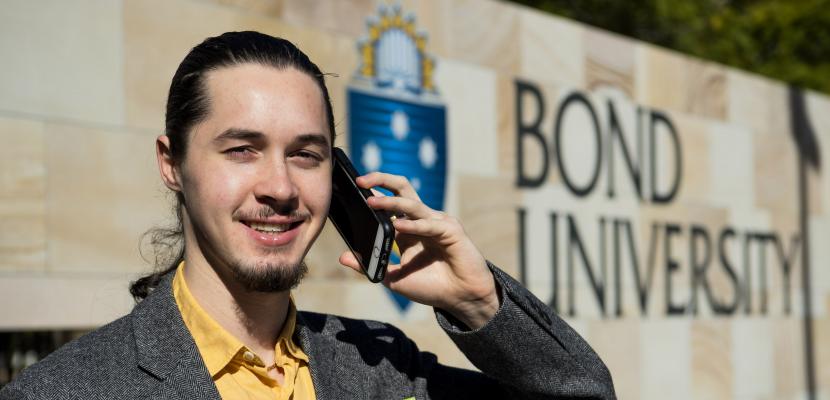
For many international students, improved English skills are a welcome byproduct of studying in Australia.
But COVID-19 lockdowns, remote study and cancelled internships have limited in-person interactions for those who arrived before the pandemic and are continuing with their studies.
At Bond University, a new Phone Tree Program is combatting social isolation and boosting the English skills of international students.
“When isolation happened, a lot of businesses shut down, a lot of students had to come out of internships or they got cancelled,” said Kirsty Mitchell, Bond University’s Director of Beyond Bond said.
“The students had worked really hard and were obviously very disappointed.
“One of the Industry Specialists started ringing the students and it became very clear that they were feeling isolated.
"A majority of them live by themselves and they weren’t getting any opportunity to speak and practise their English.”
The Phone Tree Program involves native English-speaking students dialing international colleagues to chat and check on their welfare.
Volunteer mentor Milan Nitopi, who is studying a Bachelor of Social Science, has been so moved by the experience that it might shape his future career path.
“I’ve thought about being a lawyer or working in social science but now I’m gravitating more towards education,” Mr Nitopi said.
“I’ve learned a lot from our Chinese students and hopefully they have learnt from me. It’s a two-way street, that’s why this program is so advantageous.
“It’s like talk therapy. It helps you develop as a person and see other perspectives and other people’s opinions. It’s really allowed me to see the greater world from a different perspective.”
The program started when the Industry Specialists realised it wasn’t sustainable for her to chat to all the students by herself, but also provided a good opportunity to connect students.
The call for volunteers to help out was overwhelming.
“It’s been incredible to see the student response to the program, we have a never-ending list of call recipients who are the international students. But at one stage, we had too many mentors,” Ms Mitchell said.
“The internationals were really shocked that so many people were willing to help them.
“They have all loved the experience.
“The team have developed a solution for students who have placements in the construction industry and they speak a lot of slang on the work site, so this is a big thing that the mentors can help with.
“The international students have actually got perfect academic English, but on a construction site, the language is more colloquial. So they have a lot of fun with learning and using the lingo."